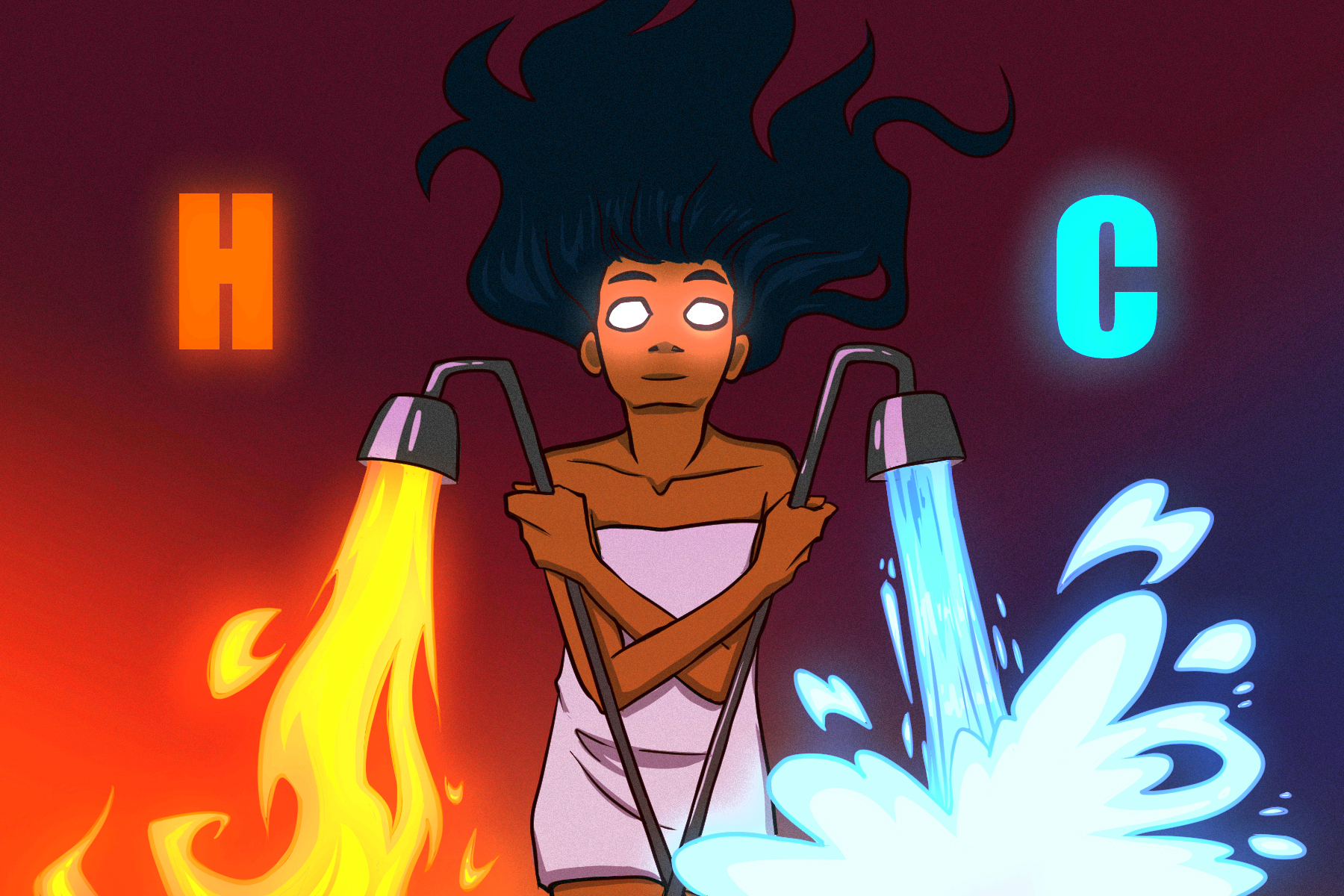Everybody bathes. Aside from just cleansing, showering can be beneficial in other ways. For example, showers provide solitude. Enjoy the break — meditate. Showers clear our minds of negative thoughts and allow relaxation. The shower is one of the only places where people will leave you alone and there are no electronics. The minimal distractions also provide room to think, make a mental to-do list, plan the day and process information. Some people choose to sing among the tiles, since the only head listening is the one spouting water. The temperature of your relaxation has a lot to do with how effective your shower is. Do you prefer hot or cold showers? Both have advantages and drawbacks.
Benefits of a Cold Shower
Cold showers provide numerous benefits. For example, a cold spritz is a great way to wake up without coffee. The cold pour can make you more alert and revitalize your energy, as it increases your heart rate and oxygen intake. Similarly, it can even improve your mood.
The cool water also keeps your skin and hair healthy. Unlike a hot sprinkle, cold water does not strip the natural oils out of your hair and skin. Instead, it closes pores, tightening the skin. Cooler water strengthens contractile fibers around your pores and hairs, which improves the firmness of your skin. Closing your pores prevents grime from penetrating your skin, demonstrating it is not always best to open your pores. The cool water reduces itchy skin, too, which is especially beneficial for people who have dry skin or eczema. Your skin cells will receive more nourishment and your skin will look more radiant. The coolness is also gentle on your hair and prevents strands from detaching.
In a way, cold showers boost your immune system: Participants in a study started showering in warm water, but ended with 30 to 90 seconds of a cold sprinkle. After comparing the results to participants who simply showered as they normally would, people who ended with cold water showed reduced sick day absences by 29%, which is a substantial boost.
At the same time, cold showers can make you feel worse if you are sick and can have a negative effect on your immune system. If too cold, the chill can put such a strain on your heart that it can lead to an irregular heartbeat.
When To Take a Cold Shower
The cold water is best for relaxing muscles after an intense workout, which is why ice baths exist. This prevents soreness, as well as improves blood circulation to areas of the body that you stress. A cold downpour is one of the best ways to dull pain. To keep your body at its normal temperature, your blood flows faster through your veins and because of that, cold showers are also beneficial for reducing inflammation.
Benefits of a Hot Shower
However, a hot shower is the best way to relax after a stressful day. The heat relieves headaches and relaxes nerves, as well as muscles. They’re ideal right before you sleep since they induce a sense of tiredness and help you sleep better. The hot water can reduce stiffness in joints, like ankles and shoulders. You can probably feel the benefits of a warm shower when you’re sick, as it is proven to help. Exposing the nose to steam helps clear stuffy sinuses and loosens phlegm. While a cold shower closes pores, a hot one opens clogged pores, which then allows you to scrub the oil and dirt out, reducing blemishes and blackheads.
Otolaryngologist (an ear, nose and throat doctor) Murray Grossan states that hot water running down your neck is extremely beneficial for stress relief and increasing circulation. This can stimulate the removal of lactic acid, which builds up in the neck due to poor posture.
However, the increase in blood circulation can also cause inflammatory cells to further irritate any dry or itchy skin. Hot showers can further irritate and dry out your skin since the top layer of your skin cells suffers when it comes in contact with extremely hot water. If the drizzle is too hot, conditions such as high blood pressure and cardiovascular disease can worsen. Additionally, excessively hot water can dry out your hair and strip both your skin and hair of their natural oils, making them dry and itchy.
When To Take a Hot Shower
The relaxing warmth an hour or two before bed will also help you sleep better. Let the warm water wash over you in the winter and clear your nasal passages when you are sick.
While this may seem contradictory, the best way to cool down in the summer swelter is with a warm shower, because of the way your skin and circulatory system respond to the heat. A cold sprinkle causes your skin’s temperature to decrease and makes you feel colder, but this causes a decrease in blood flow and will not release as much heat. So while a cold drizzle is a temporary fix for overheating, in the long run, a warm shower will keep you cooler longer.
Expert Opinions
According to dermatologists, it’s best to take a shower once a day — even twice a day during hotter months. Because of the stripping qualities of hot water, warm showers should be kept to five minutes. Similarly, you shouldn’t wash your hair too frequently, either — twice a week should suffice. Always start at the top, washing your hair first and then working your way down to your toes.
Of course, if you are bathing for overly long periods or in extreme temperatures, it can have a negative impact on your skin. Experts advise lukewarm temperatures for regular showers to prevent the damage from either a hot shower or a cold shower. The spray only needs to feel slightly warmer than your skin. An easy way to measure this is to run your wrist under the falling drops instead of your hand. It’s hard to jump into a cold shower in the middle of winter or a warm one in the summer, but it’s easy to start at the temperature you want and gradually turn the dial toward the appropriate temperature. No matter which temperature you prefer, the other will benefit you as well, even in small doses.

















